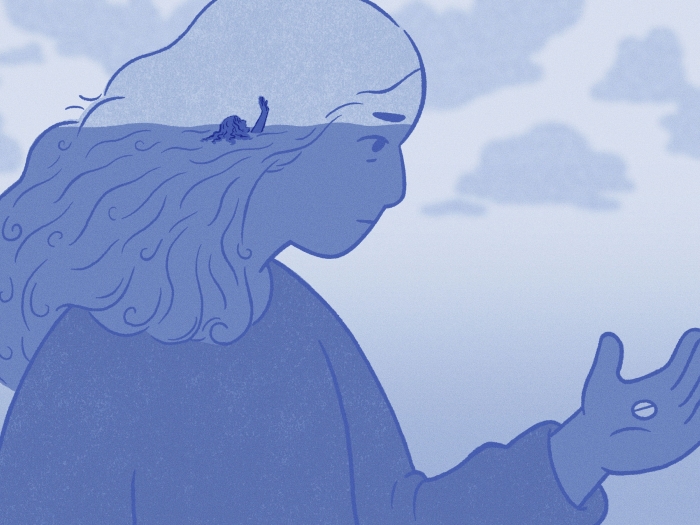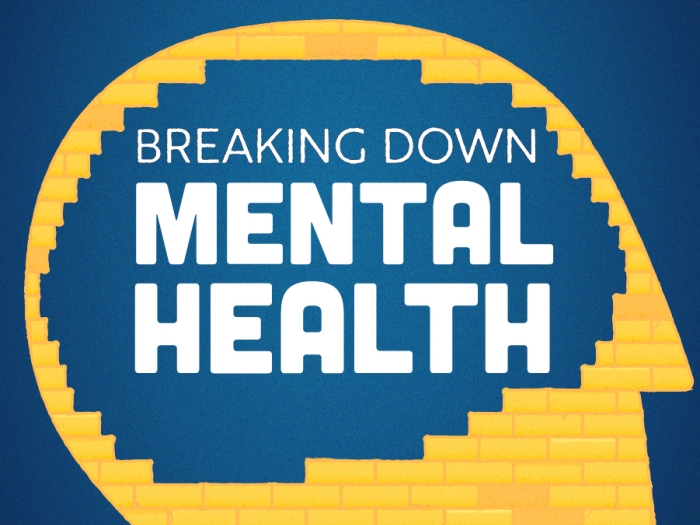Researchers say clinicians should focus more on interventions for treating chronic pain in light of these findings.
2:11 PM
Author |

Adults living with spinal cord injuries have a near-80% increased risk of developing psychological conditions, such as depression and anxiety, compared to people without the traumatic injury, a new study shows. But chronic pain may have an equally large, negative effect on mental health.
The study is published in Spinal Cord by a Michigan Medicine-led team of researchers who analyzed private insurance claims from more than 9,000 adults with a traumatic spinal cord injury and more than 1 million adults without. They accounted for a range of psychological conditions, from anxiety and mood disorders to insomnia and dementia.
People living with a spinal cord injury were diagnosed with a mental health condition more often than those without the injury – 59.1% versus 30.9%. While depression and adverse mental health effects are not inevitable consequences of every traumatic spinal injury, past findings have consistently echoed higher levels of psychological morbidity among this group than the general population without spinal cord injuries.
SEE ALSO: Education and earnings: cost of childhood spinal cord injuries from gunshot wounds
In this study, however, chronic centralized and neuropathic pain among adults living with a spinal cord injury were found to be robustly associated with post-traumatic stress disorder, substance use disorders and other mental health conditions. In most cases, chronic pain was an even greater influence on these conditions than exposure to living with the injury itself.
Researchers say the findings should prompt physicians to identify mental health conditions when seeing patients with spinal cord injuries and refer them to mental health providers for treatment.
"Improved clinical efforts are needed to facilitate screening of, and early treatment for, both chronic pain and psychological health in this higher-risk population," said Mark Peterson, Ph.D., lead author of the paper and associate professor of physical medicine and rehabilitation at Michigan Medicine.
However, researchers note a lack of insurance coverage and limited available services will likely cause the issue to remain largely unaddressed.
"Stakeholders need to work together to lobby for more federal research funding and special policy amendments to ensure adequate and long-term insurance coverage for both physical and mental health to meet the needs of folks living with spinal cord injuries," Peterson said.
Like Podcasts? Add the Michigan Medicine News Break on iTunes, Google Podcasts or anywhere you listen to podcasts.
Additional authors include Michelle Meade, Ph.D., Michigan Medicine Department of Physical Medicine and Rehabilitation, Paul Lin, M.S., University of Michigan Institute for Health Care Policy and Innovation, Neil Kamdar, M.A., University of Michigan Institute for Health Care Policy and Innovation, Gianna Rodriguez, M.D., Michigan Medicine Department of Physical Medicine and Rehabilitation, Elham Mahmoudi, Ph.D., Michigan Medicine Department of Family Medicine and James Krause, Ph.D, Medical University of South Carolina.
This research was developed in part under a grant from the National Institute on Disability, Independent Living, and Rehabilitation Research (NIDILRR #90RTHF0001-01-00).
Paper cited: "Psychological morbidity following spinal cord injury and among those without spinal cord injury: the impact of chronic centralized and neuropathic pain," Spinal Cord. DOI: 10.1038/s41393-021-00731-4

Explore a variety of healthcare news & stories by visiting the Health Lab home page for more articles.

Department of Communication at Michigan Medicine
Want top health & research news weekly? Sign up for Health Lab’s newsletters today!





